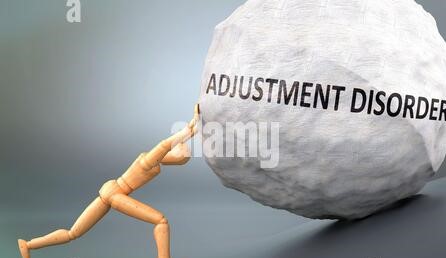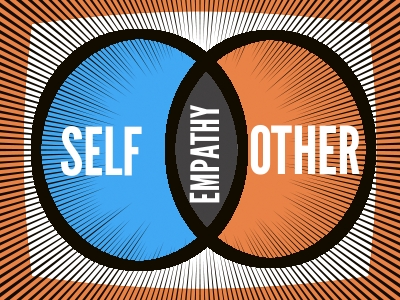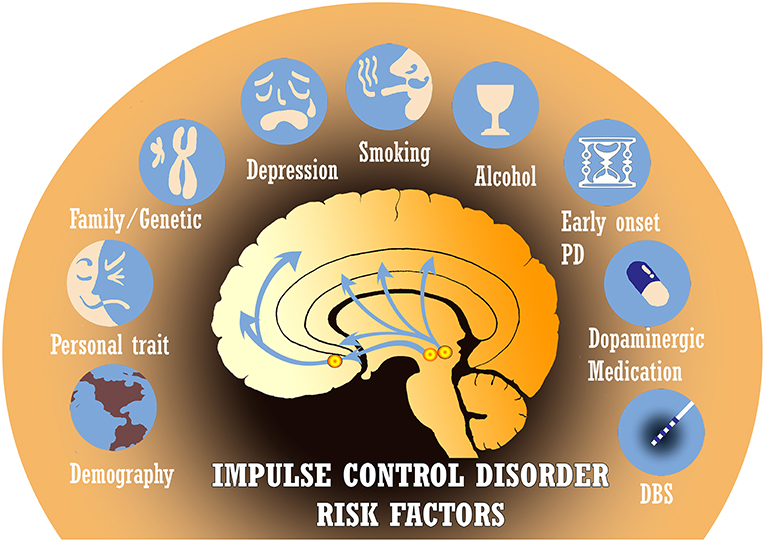
Adjustment Stress disorders are conditions caused by stress. You endure abnormally high levels of stress in response to a stressful or unexpected occurrence, and this stress produces significant difficulties in your relationships, at work, or in school. Problems at work, leaving for college, illness, a close relative's Death or any other life upheaval can generate stress. People typically adapt. such adjustments within a few months. However, if you have an adjustment, If you continue to experience emotional or behavioral responses that This can add to feelings of anxiety or depression. You don't have to endure hardship. ... alone, however Treatment might be quick and is likely to assist in regaining emotional balance.
Symptoms
Depending on the type of adjustment disorder, signs and Symptoms can differ from person to person. For example, you endure abnormally high levels of stress in response to a stressful incident, and the pressure causes significant difficulties in your life. Adjustment disorders can affect Your feelings and thoughts about yourself, the world, and your behaviour
·
Feeling sad,
hopeless, or not enjoying things you used to enjoy
·
Frequent crying
·
Worrying or feeling
anxious, nervous, jittery, or stressed out
·
Difficulty sleeping
·
Lack of appetite
·
Difficulty
concentrating
·
Feeling overwhelmed
·
Difficulty performing daily activities
·
Withdrawing from
social supports
·
Avoiding essential
things such as going to work or paying bills
· Suicidal thoughts or behaviour
The onset of adjustment disorder symptoms occurs within three months of a stressful event and lasts no longer than six months following the incident. However, persistent or chronic adjustment issues can remain for more than six months, especially if the stressor, such as unemployment, is ongoi
When to see a physician
Typically, stressors are transient, and we develop coping mechanisms over time. Because stress has diminished, adjustment disorder symptoms improve. However, occasionally the distressing experience continues to impact your life. Or a new stressful event arises, causing you to experience the same emotional challenges again. Consult your physician if you continue to struggle or if you find it challenging to get through each day. You can receive treatment to help you better manage stressful circumstances and regain a positive outlook on life. Consult a paediatrician if you have concerns about your child's adjustment or behaviour.
Causes
Major life transitions or pressures trigger adjustment.
disorders. The probability of an adjustment disorder may be influenced by
genetics, life experiences, and personality.
hazard factors
Some factors may increase your likelihood of having a
adjustment disorder.
traumatic incidents. Positives and negatives Stressful life events may increase your risk of having an adjustment disorder. For instance:
·
Divorce or marital
issues
·
Relational or
interpersonal difficulties
·
Changes in
circumstances, such as retirement, having a child, or leaving for college;
·
Adverse
circumstances, such as losing a job, losing a loved one, or having financial
problems.
· Difficulties at school or work; life-threatening experiences, such as a physical attack, combat, or natural disaster; traumatic experiences, such as sexual abuse, neglect, or abandonment. Persistent stressors, such as having a medical condition or being in a dangerous neighbourhood
Your life experiences
Life Experiences can influence how one handles stress. For instance, Your chance of having an adjustment disorder may be elevated if you:
·
experience
considerable stress as a child.
·
have other mental health
issues.
· several stressful life events co-occurring.
Difficulties
Adjustment disorders can progress into more serious problems. Serious mental health issues such as anxiety disorders, depression, or substance abuse if they do not resolve it.
Prevention
There are no surefire ways to stay away from it. adjustment issues. However, establishing good coping strategies and learning to
Being resilient may be beneficial during extreme stress. If you anticipate a problematic scenario, such as a move or retirement, you should call upon your
inner strength, adopt healthier habits, and mobilize your social support in
preparation. Remind yourself that discomfort is typically temporary and that
You can endure it. Contact your physician or mental health practitioner to
discuss appropriate stress management techniques.
Comments (0)
Categories
Recent posts


Human Psychology & Empathy
2022/05/24
Impulse Control Disorders
2022/05/31
Aviation Industry and Mental Health
2022/04/18
